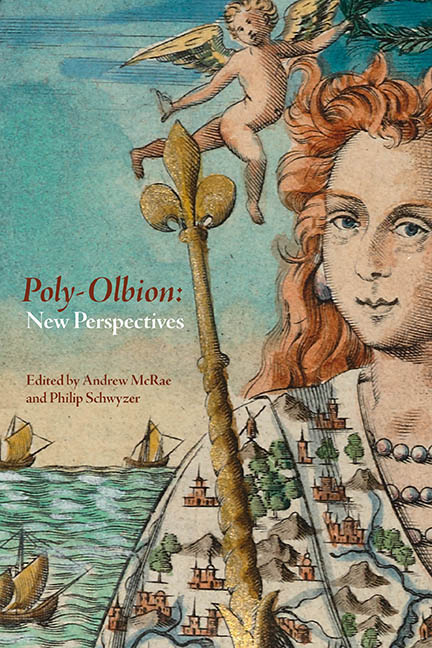10 - ‘The Wonders of the Deep’: Drayton, Selden, and Deep Time
Published online by Cambridge University Press: 27 March 2020
Summary
No reader of Poly-Olbion can be oblivious to the tensions between the poet Michael Drayton and his annotator, John Selden. Indeed, one of the poem’s slightly guilty pleasures lies in watching Selden, with unimpeachable erudition and (almost) unfailing courtesy, dismantle the legends of British antiquity that Drayton celebrates in so many of the early songs. Yet to read the interplay between poet and commentator as a confrontation between cherished medieval myth and new historical scholarship would be to over-simplify each writer's position, and also to misidentify the fundamental stakes of their debate. Although Drayton and Selden do disagree about the history of ancient Britain, especially in the millennium before Caesar’s arrival, neither is deaf to the other's arguments. The final stages of composition before the publication of the first part of Poly-Olbion gave each writer the opportunity to hone his own position and perspective in response to his interlocutor's case. Ultimately, as I shall argue here, the dialogue between Drayton and Selden is less concerned with the facts of British antiquity than with the shape of historical and prehistoric time, and with the question of how those in the present can properly value a past about which they know next to nothing.
If, as some critics have argued, Selden's annotations fatally undermine a central plank of Drayton's poetic project, the poet himself seems blithely unconcerned by the damage. In the preface to Poly-Olbion, Drayton gives no indication of awareness that his witty young annotator has different views on British history than his own. Although he has blistering words for those who fail to value the antiquities of their own country, he seems complacent in counselling readers to turn to ‘the Illustration of this learned Gentleman, my friend, to explaine every hard matter of history, that, lying farre from the way of common reading, may (without question) seem difficult unto thee’ (p. vi*). Yet even in his own address to the reader, Selden signals that he will not acquiesce in upholding many of the poem's central historical themes, in particular those traditions concerning British antiquity derived from the writings of Geoffrey of Monmouth.
- Type
- Chapter
- Information
- Poly-Olbion: New Perspectives , pp. 211 - 230Publisher: Boydell & BrewerPrint publication year: 2020

